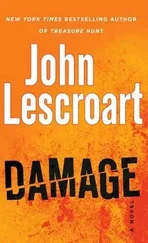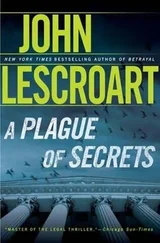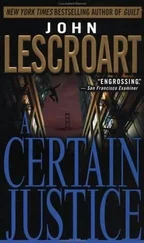“I contend that in this theory lies the root of truth in our more celebrated detective heroes.” He paused and relit his pipe.
“You’re not saying that you think Holmes actually existed?” I said.
“Precisely, John, precisely.”
Arrowroot spoke up. “It’s not a new theory at all. As far back as 1900, readers were proposing it. Holmes was still alive at that time, remember.”
“But a man of his supposed stature?” I protested. “I should think that, even fictionalized, he’d be immediately recognizable to the public.”
“James Bond isn’t,” Kevin said.
“James Bond! Come on.”
They shrugged at one another. “It’s been established that he’s alive and working right now. Of course, though it hurts to admit it, Fleming was better at peripherals than Conan Doyle.”
“Peripherals?” I asked.
“You know, names of minor characters, addresses, that sort of thing. Fleming never used real names or addresses, at least so far as we know. And while, of course, Holmes was not named Holmes and didn’t live at 221B Baker Street—actually we think he lived in Bond Street near Selfridges—Conan Doyle couldn’t help but leave a few characters untouched. He was probably leaving us clues. He had such a fine sense of play. But Hugo, here, is really the expert.” He turned to Arrowroot. “Perhaps you’d like to take it from here.”
“All right,” he said, “but I’m sure we’d all be more comfortable sitting down.”
We went out to the hall and brought in more chairs. The novices among us, of whom there were about five including myself, joked about this preposterous theory. When we’d gotten arranged and the brandy had been passed again, Arrowroot, from a large chair near the fireplace, began:
“The characters that Conan Doyle—or should I say Watson?—left intact for us were Martha Hudson and Irene Adler. You’re all familiar with Martha Hudson; at least you should be after this evening. She worked for the man who was Holmes until he died in Sussex Downs, after which she came back to London and worked for Lord Peter Thatcher, of the Bank of London, until 1938. She never divulged Holmes’s true identity, except of course to Thatcher as a reference. In all probability, Thatcher himself knew long before. In any event, when Thatcher died in the bombings of London, the secret of Holmes’s identity was lost forever, since Mrs. Hudson died shortly after she began her retirement, and certainly Conan Doyle never told.
“There was also, as I’ve said, Irene Adler, ‘the only woman,’ according to Holmes. She was, indeed, a famous Continental singer in the late 1800s, who disappeared between the years 1892 and 1894. And mark this: those are the very years that Holmes disappeared after following Moriarty to the Reichenbach Falls.” He paused for a moment.
“I’ve read somewhere,” ventured another guest, “that letters addressed to 221B Baker Street get answered, though.”
Kevin snickered. “Poppycock. A bank clerk answers those letters. They’re not even worth considering.”
“Kevin’s right,” Arrowroot continued. “Those ‘public’ incidentals mean nothing. The man who was Holmes would have never allowed use of so blatant a giveaway. He might just as well have let Conan Doyle use his proper name as his proper address. No, he saw Conan Doyle’s clues, and obviously enjoyed them, as he tolerated them. So the path to the truth follows these clues, not the obvious fictions of names and addresses. And there are a few others. Mycroft, for example.”
We all looked questioningly at him.
“Mycroft Holmes, Sherlock’s brother, the most brilliant man in England. His last name was not Holmes, of course, but we believe his first name was actually Mycroft. He ran the British government single-handedly, especially during World War I. As head of the Secret Service, among other things, he was known as ‘M,’ a title which I’m sure is familiar to all of you. His initial became the title for the head of British Intelligence. That, by the way, is perhaps Fleming’s only slip in the matter of peripherals.
“We also believe that Holmes’s code name during World War I was actually Altamont, that he raised bees, injected himself with cocaine, smoked a pipe, and played the violin. What we don’t believe is that he actually wrote down a few of his own adventures—that again was Conan Doyle with his sense of play. In all, you see”—he spread his hands out before him—“there is quite a good case.”
“But nothing really conclusive,” I said.
“Ever the cynic.” Kevin smiled. “Well, no, nothing really , finally conclusive. No sworn affidavit. But there is one other major bit of evidence that Hugo has overlooked.” He looked to Arrowroot. “The articles?”
Our host chuckled. “Oh, yes, of course.” He looked at his guests. “If you read the Holmes stories, you will note from time to time that Watson talks of articles—‘little monographs, ’ he calls them—that Holmes has written about any number of subjects, ranging from beekeeping to medicine to musical criticism. Probably the most famous is his treatise on tobaccos and their ashes. All of these articles appeared in periodicals of the times, and all anonymously. So . . . nothing conclusive, but it is an interesting array of facts, isn’t it?” He stood up. “I invite you all to look through the reference books I have here, and please, help yourselves to the brandy.”
Everyone stood up and gravitated toward the center table. General murmuring once again filled the room. After a few moments, I found myself again with Kevin.
“Very interesting theory,” I said.
“You seemed a bit skeptical,” he answered lightly, “but it does sound strange on the first hearing, especially if, as you’ve said, you’ve never read Conan Doyle.”
“Is Holmes really that good?”
He smiled. “He is the Master—of deduction, of disguise, of detection.”
I thought for a moment. “Presumably, such a man—a man skilled in the art of detection—would have no trouble escaping detection himself.”
“Quite so,” Kevin said, “which is why those who have sought to authenticate the Holmes legend have had such a time of it.”
I finished my drink and looked at my watch. Quarter past eleven, and I had students in the morning. I asked Kevin if he were going home by way of Cambridge, and would he mind giving a skeptical friend a lift. We said our good-byes and thanked Arrowroot, then stepped out into the bitter Boston night.

I didn’t have occasion to think again of that night until nearly five months later.
On January 8, 1983, I received the happy news that four of my songs had been accepted for a television premiere and, with the arrival of a royalty advance, I found myself, at least by my earlier standards, a rich man.
Accordingly, I bid a hasty farewell to my students and to the Boston winter and booked passage on a steamer to Morocco, where I passed the winter and early spring. By mid-April I was anxious to get back to writing, yet in no particular hurry to return to the U.S. One of my songs was having some popular success, and my agent had written several times, asking me to send him a tape as soon as possible. During the three months in Morocco, I had had a fine time but hadn’t written a note, so I decided to settle somewhere for the summer and to devote the time to work.
On April 19, I flew from Casablanca to Lyon, France, where a woman I knew had been spending the winter. After looking for several days, we came across an ad in the International Herald Tribune that looked ideal: a summer home, surrounded by oaks and vineyards, with a brook and arbor, near Valence, which is about halfway between Lyon and Marseilles.
Читать дальше













